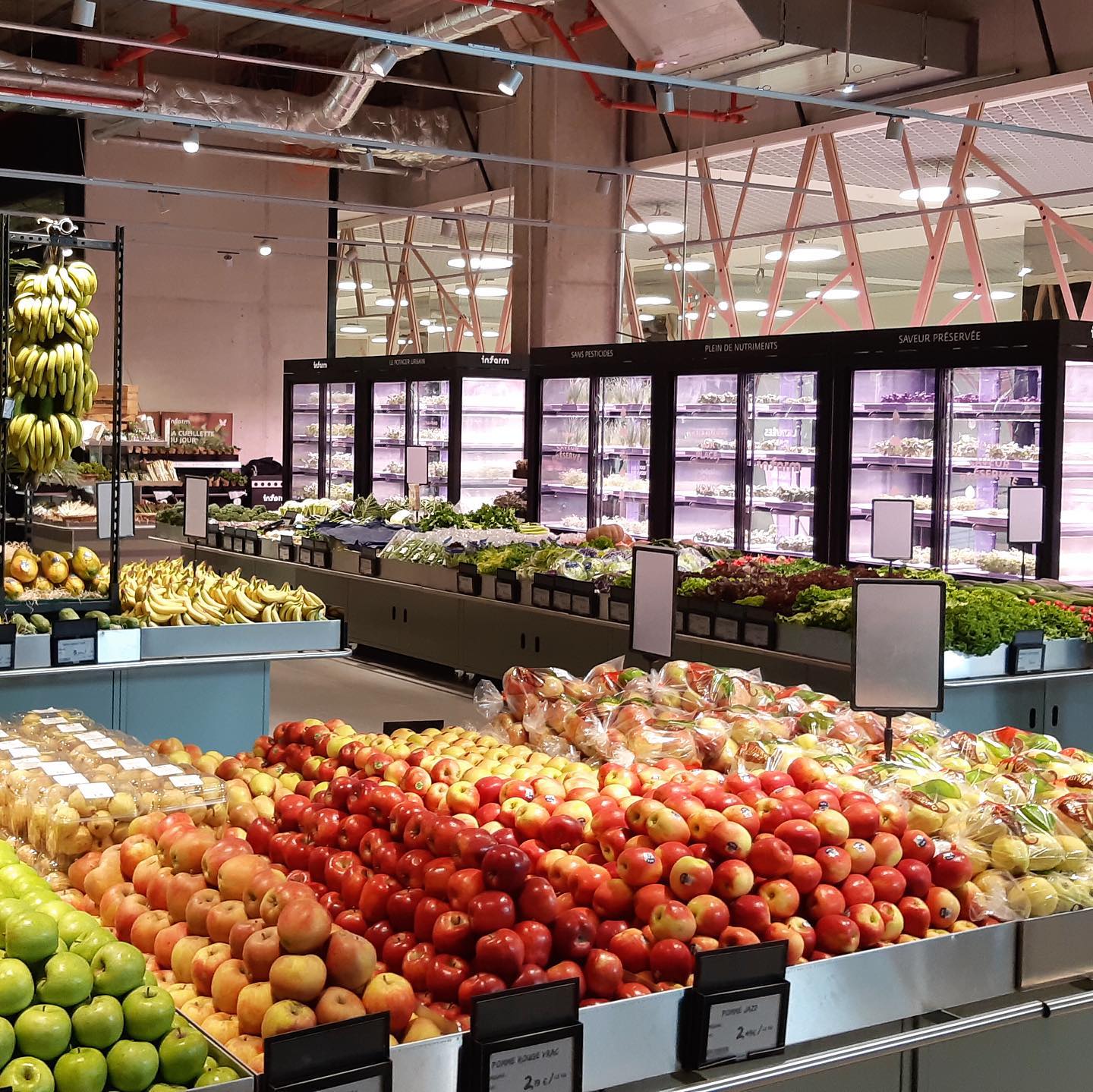Berlin-based portable vertical farm startup InFarm on Tuesday disclosed a vast Series B raise of $100 million, bringing its total funding to over $134 million. The raise dramatically eclipsed the big vertical farming news from Britain’s Ocado, which had forked out $22m just a day before as part of a majority stake buyout of JFC, as well as for its new joint venture Infinite Acres.
InFarm’s debt and equity Series B round was led by London’s Atomico, alongside impact investor Astanor Ventures, Cherry Ventures, and TriplePoint Capital.
In a memo released on its site, Atomico explains the fundamentals of its investment decision: “Infarm’s vertical farming units are unique because they are distributed not centralized, more efficient than soil-based agriculture, data-driven and biodiverse.”
“They have partnered with 25 major food retailers including Edeka, Metro, Migros, Casino, Intermarche, Auchan, Selgros, and Amazon fresh in Germany, Switzerland, and France and deployed nearly 300 farms in 150 stores, producing approximately 500,000 plants. They aim to be in 10,000 supermarkets by 2022, serving 350 million people, and by 2050, to be the leading provider of fresh produce for the 7B people living in urban centers.”
Infarm Aims To Be in 10,000 Supermarkets By 2022
Closer to the present, the 250-strong team — headed up since 2013 by founders Erez Galonska, Osnat Michaeli and Guy Galonska — is bracing for a UK launch this Autumn. The company’s passion for sustainable fresh produce also seems to have struck a chord with Atomico — which in its memo alludes to its mandate for investing in socially and environmentally impactful entrepreneurship. The memo warns how the consumption of fresh produce today “is a huge environmental burden on our planet.”
“Seasonless appetites, lengthy transportation routes, and overused soil,” it adds, “take a heavy toll not just on the environment but also on taste and nutrition. Production of fresh produce is centralised in only few climate zones with an average distance of 2,500km between farm and retailer. As a result, the CO2 footprint of food equals 17% of total global emissions and 45% of plants’ nutrients are lost by the time they arrive in the supermarket.”
Such a whopping sense of investor enthusiasm and hype for companies like InFarm, meanwhile, is starting to become a new normal. A spate of other recent funding rounds have been fairly stellar as well. In 2017, indoor vertical farming company Plenty managed to raise $200 million of Series B funding, led by Softbank’s Vision Fund. Similarly, in December 2018, Bowery Farming, the New York-based indoor farming group, secured a $90 million Series B round, led by Google’s venture arm GV.
Image: InFarm containers at Auchun supermarket in Luxembourg, from its Facebook page.





